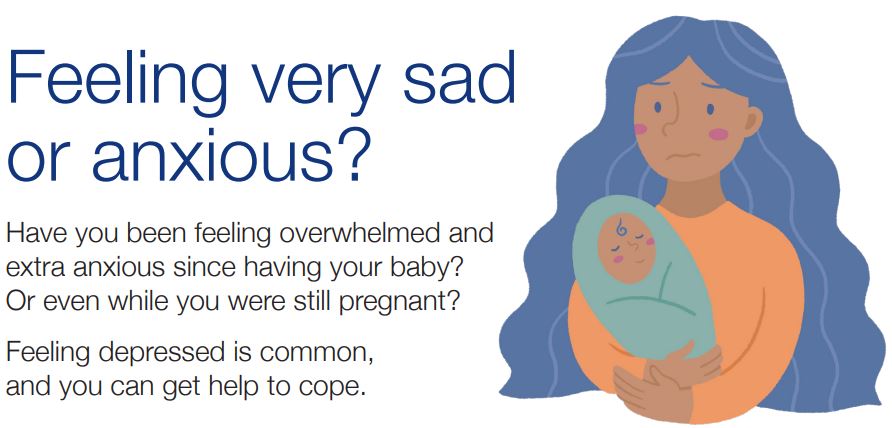Resources

Feeling Very Sad or Anxious?
This printable factsheet addresses common questions birth parents might have about postpartum depression. Pediatricians can provide this to parents to support a conversation on mental health.
How to Integrate Postpartum Depression Screening in Your Practice
What is Postpartum Depression?
Postpartum depression is a subset of perinatal depression, and both are common and treatable. Between 11% and 18% of Americans report symptoms of depression after giving birth, a percentage that climbs to 25% among low-income parents and 40%-60% for low-income adolescents.
Left untreated, depression can hurt parents’ ability to bond with and care for their baby and lead to discontinued breastfeeding, family dysfunction and an increased risk of child abuse and neglect. Untreated depression also can affect a baby’s brain development by increasing the risk of toxic stress, which delays the infant’s language, cognitive and social-emotional development.
Yet a 2019 survey of AAP members found that only about half of pediatricians (53.9%) conduct formal screening for maternal depression.
And then the pandemic hit, which increased isolation, depression and anxiety for many Americans but especially pregnant and postpartum people, who have been more isolated than ever.
As North Carolina pediatrician Christoph Diasio, MD, FAAP, puts it: “People are fried after this much pandemic suffering. And that includes pediatricians.”
But a healthy baby requires healthy parents, and pediatricians who spend a little time now screening for depression and connecting parents to treatment can create a lifetime of positive benefits for the child.
Here is a summary of the main pillars of the American Academy of Pediatrics’ 2019 policy statement and technical report, with links and resources to help pediatricians integrate depression screening into their own practice.
One Parent's Story: Recognizing the Signs of Postpartum Depression
Ellie Berkowitz-Handler calls the first few months after her first son was born “rocky.”
He cried nonstop. He would sleep only if he was held or if he was moving, like during the two-hour runs she would take him on. They were exhausting for her, but at least he slept, she thought.
She lost a lot of weight and began to feel overwhelmed, panicky—and paralyzed.
Neither her pediatrician nor her obstetrician offered mental health screenings. But Berkowitz-Handler, the daughter of a pediatrician, had been treated for anxiety before, so she called a psychiatrist.
“I knew I needed help,” she recalls. “My psychiatrist said, ‘Let’s put you back on medication,’ and within a month, I was back to myself, feeling totally normal.”
But she knows that many new parents don’t have the same knowledge or the resources to get help.
The Importance of Screening for Postpartum Depression
Ellie Berkowitz-Handler’s experience with postpartum anxiety didn’t end with her first child. She experienced it after her second child was born too. “Literally 12 hours after my C-section, I could feel the chemical shift. My skin crawled, my heart raced. It lasted 24 hours a day.”
Since overcoming PPD a second time with the help of anti-anxiety medication, she’s become involved in supporting other parents. She volunteered for and then joined the board of Maternal Mental Health Now in Los Angeles.
“There’s so much stigma. I thank my lucky stars that I grew up in a medical household. There was no stigma,” she says.
Ellie thinks more pediatric practices should take the time to screen new parents, and that they should actively and directly connect struggling parents to a mental health resource if they screen positive.
“I saw my pediatrician so much during the first few months of my children’s lives. If they could have taken a few minutes to screen, it would have been so helpful.”
Last Updated
06/22/2022
Source
American Academy of Pediatrics